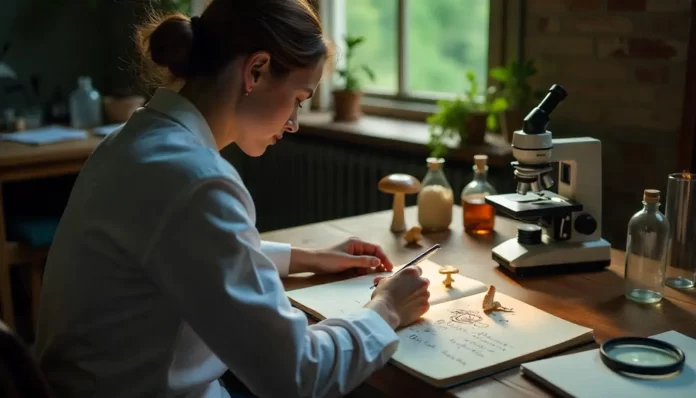Microdosing—taking small, non-hallucinogenic amounts of psychedelic substances—is rapidly becoming a wellness trend embraced by people from all walks of life. Rather than seeking intense psychedelic experiences, individuals like Matt Metzger are turning to tiny doses of substances like psilocybin mushrooms to boost mood, creativity, and mental clarity without experiencing hallucinations.
A Subtle Approach to Psychedelics
The typical microdose is just a fraction of a recreational dose, usually one-tenth to one-twentieth, allowing users to function normally throughout the day. Metzger, for example, cultivates Psilocybe cubensis mushrooms at home, grinds them into powder, and places precise amounts into capsules. This careful preparation is key, as even small variations in dosage can affect outcomes.
Many microdosers report feeling more present, creative, and emotionally grounded. Some say the practice helps them tap into new ideas or experience a deeper sense of connection with others. These personal stories have fueled widespread interest, particularly among professionals, creatives, and those seeking alternatives to traditional mental health treatments.
Scientists Examine the Placebo Possibility
Despite the enthusiasm, the scientific community remains cautious. Researchers are investigating whether microdosing has real biological effects or whether its perceived benefits are primarily driven by the placebo effect. Some early studies suggest that while users report improvements in mood and cognition, these changes may not be directly tied to the psychedelics themselves.
Still, advocates like Metzger believe the benefits are real. He credits microdosing with improving his overall mental health, describing it as a “subtle but transformative” tool in his personal development. Yet turning such subjective experiences into hard data remains a challenge for researchers trying to determine microdosing’s true potential.
Creativity, Connection, and Emotional Insight
For many users, microdosing is less about fixing problems and more about unlocking potential. Artists, tech workers, and entrepreneurs have described using microdoses to enhance creativity, problem-solving, and emotional insight. Some report improved relationships and greater empathy—benefits that go beyond productivity to touch on deeper personal growth.
While these anecdotes are compelling, experts stress the need for more research to understand whether these effects are consistent and replicable. As interest continues to grow, the gap between anecdotal experience and scientific validation remains a focal point.
Legal and Safety Considerations
Despite its growing popularity, microdosing still exists in a legal gray area. In many countries and U.S. states, psychedelics like psilocybin remain illegal, and individuals who grow or possess them risk prosecution. This legal status also raises safety concerns, as people often self-administer substances without medical guidance or quality control.
As more people turn to microdosing, there is increasing demand for safer, more regulated frameworks. Some advocates are pushing for decriminalization or medical legalization, arguing that a well-regulated system could reduce risks and ensure access to those who might benefit.
Balancing Curiosity with Caution
Microdosing sits at the intersection of science, self-exploration, and shifting cultural attitudes toward psychedelics. While personal stories continue to spark interest, experts emphasize the need for rigorous research, ethical considerations, and informed dialogue. Collaborations between scientists, mental health professionals, and policymakers could pave the way for a more comprehensive understanding of microdosing’s effects.
As society becomes more open to consciousness-altering therapies, microdosing may represent a new chapter in how we approach mental health, creativity, and personal growth. But for now, it remains a frontier—one where hope and skepticism walk hand in hand.


